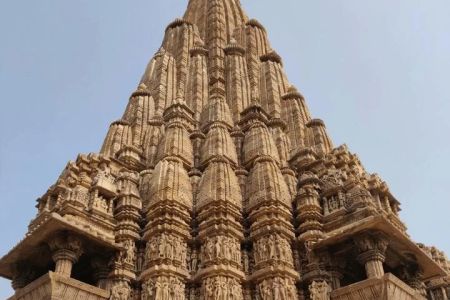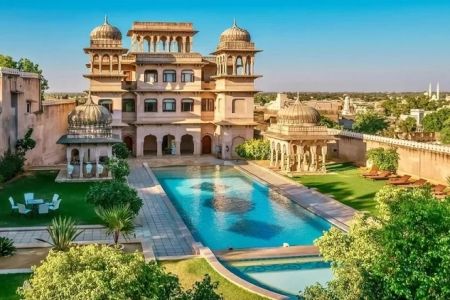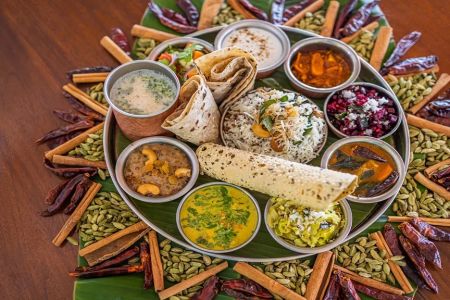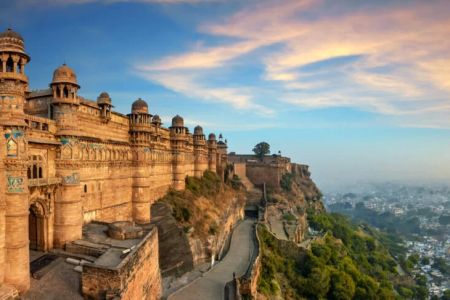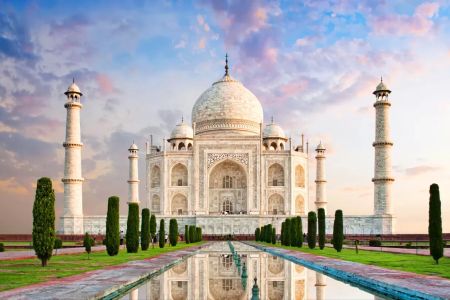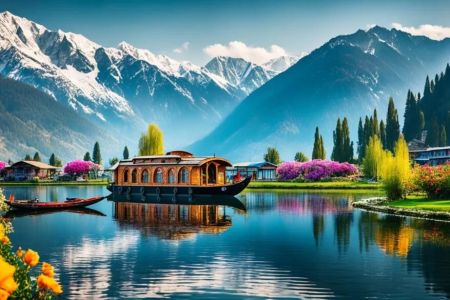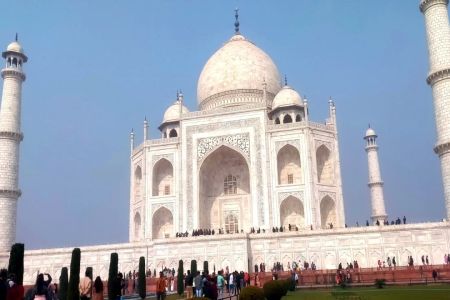Top Cultural Experiences in India: Unveiling the Rich Heritage of a Timeless Land
1. Explore Ancient Temples and Sacred Sites
India is home to some of the oldest and most sacred temples in the world. Visiting these temples offers an enriching cultural experience, allowing travelers to witness spiritual practices that have been passed down for centuries. The temples are not just places of worship; they are also architectural marvels, steeped in history and tradition.
Take the famous Golden Temple in Amritsar, a serene place of worship that attracts millions of pilgrims each year. The beauty of the temple, with its golden facade and peaceful surroundings, offers a unique insight into Sikh spirituality and culture. Another must-visit is the Kashi Vishwanath Temple in Varanasi, dedicated to Lord Shiva, where you can observe ancient rituals and ceremonies performed along the Ganges River. These sacred sites provide an immersive experience into the spiritual heart of India, making them an essential part of any cultural journey.
2. Immerse Yourself in Vibrant Indian Festivals
India is a land of vibrant festivals, each celebrated with unique customs and rituals. These festivals offer a rare opportunity to experience India's cultural diversity and witness the joy, excitement, and unity of its people. Whether you’re in the north, south, east, or west, the country’s festivals are an explosion of colors, sounds, and traditions.
One of the most famous festivals is Diwali, the festival of lights, celebrated by millions of Hindus across the country. The streets are adorned with lights, and people gather to share sweets and celebrate with family. Another significant festival is Holi, the festival of colors, where participants throw colored powder at one another in a joyous celebration of the arrival of spring. These festivals, along with others like Durga Puja and Eid, provide a deep dive into the cultural and spiritual fabric of India.
3. Discover the Flavors of Local Indian Cuisine
Food in India is a cultural experience in itself. Every region offers distinct flavors, ingredients, and cooking techniques, making Indian cuisine one of the most diverse and exciting in the world. From street food to high-end dining, India’s culinary scene is an exploration of spice, flavor, and history.
In Delhi, you can sample the famous chaat, a collection of savory snacks, or indulge in a plate of butter chicken, one of India’s iconic dishes. In South India, you can savor dosas and idlis, light, crispy pancakes and steamed rice cakes, often served with coconut chutney. Visiting local markets, such as those in Jaipur or Kolkata, provides the opportunity to taste regional specialties and discover local food traditions.
4. Experience the Traditional Arts of India
India is a treasure trove of traditional arts that have been practiced for thousands of years. The cultural landscape of India is enriched by classical dance forms, music, and craftsmanship. Each state and region has its own unique traditions, offering a rich cultural tapestry for visitors to explore.
For example, you can attend a Kathak dance performance in Uttar Pradesh, one of the classical dance forms of India, or enjoy a Bharatanatyam recital in Chennai. India’s music traditions also offer a deep cultural experience, from the intricate rhythms of Tabla to the spiritual tunes of Carnatic music in the south. Additionally, India’s traditional arts include the stunning craftsmanship of block printing in Rajasthan and the intricate designs of kalamkari in Andhra Pradesh, providing travelers with a glimpse into the rich artistic heritage of the country.
5. Explore Bustling Local Markets
The local markets in India are a sensory overload, filled with colors, sounds, and a variety of goods ranging from spices to textiles, jewelry, and handicrafts. These markets are not just places to shop, but also offer an authentic cultural experience. Wander through the bustling lanes of markets like Chandni Chowk in Delhi or the Johari Bazaar in Jaipur, where you can interact with local artisans, sample street food, and purchase unique handcrafted items.
Shopping in these markets provides a deeper understanding of local life, traditions, and the importance of craftsmanship in Indian culture. Bargaining is a part of the experience, and engaging with the sellers can also provide you with stories about the items they sell and their cultural significance. These vibrant markets reflect the pulse of India and are essential stops for anyone seeking a full cultural experience.
6. Take Part in Ancient Indian Rituals and Ceremonies
Taking part in a traditional Indian ritual or ceremony is one of the most immersive cultural experiences you can have. India is rich in ancient customs that are still practiced daily. Whether it’s participating in a puja (prayer ceremony) at a temple or watching the Ganga Aarti ceremony in Varanasi, these rituals offer insights into India’s deep spiritual traditions.
In Varanasi, you can witness the Ganga Aarti at the ghats, where priests perform a grand ritual to honor the Ganges River. The ceremony involves chanting, lighting oil lamps, and waving them before the river, creating a beautiful, almost mystical atmosphere. These types of spiritual rituals are not just visually stunning, but also provide visitors with an intimate understanding of the spiritual life of India.
7. Plan Your Perfect India Cultural Trip
India offers a wealth of cultural experiences that are sure to enrich your travel journey. From the ancient temples of Varanasi to the lively markets of Delhi, there is something for every type of traveler. Planning your trip around these cultural experiences will give you a deeper appreciation of India’s history, traditions, and diverse heritage.
If you’re looking for expert guidance, Travel India One offers curated tours that focus on the cultural richness of India, from visiting heritage sites to engaging with local communities. Ready to dive into the vibrant culture of India? Start planning your cultural journey today!

